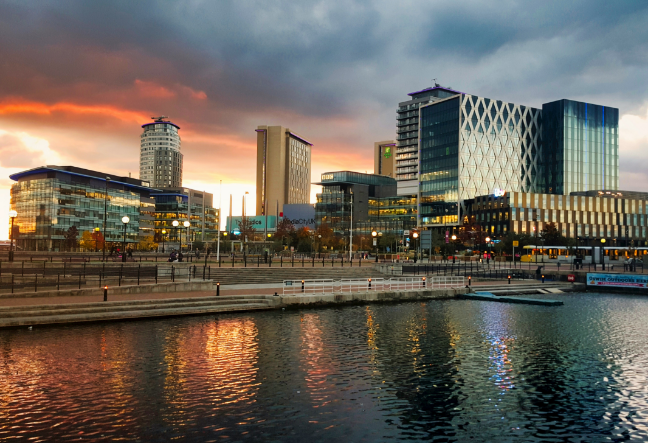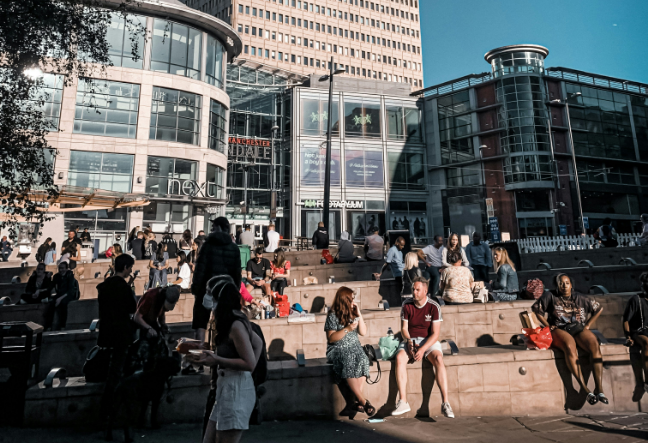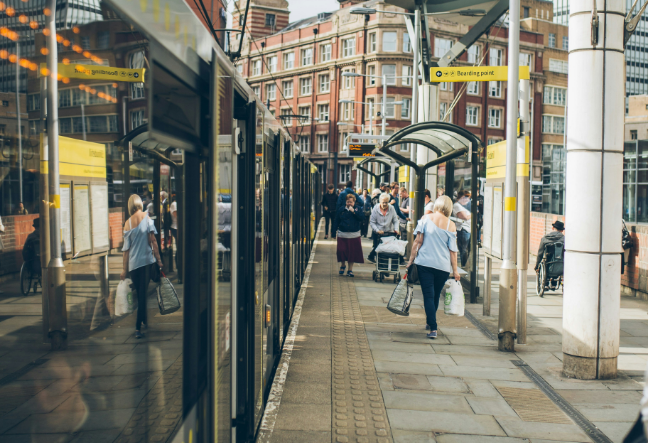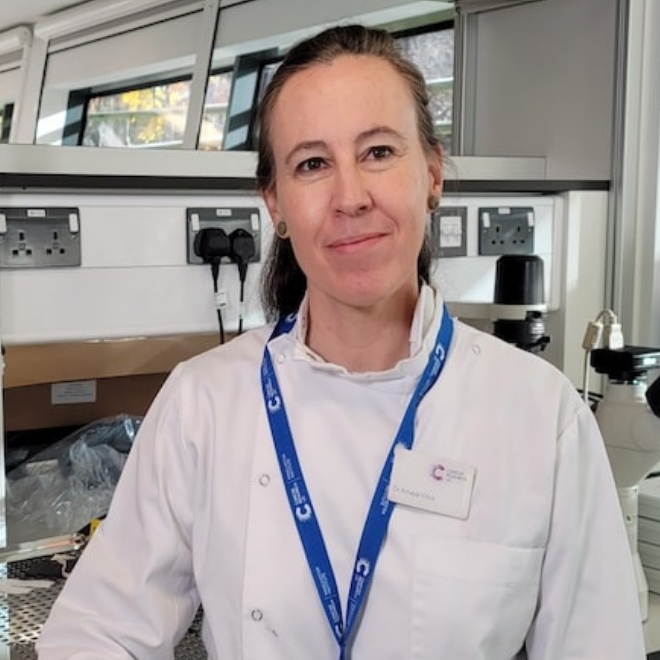Living in the vibrant city of Manchester
Manchester is a city for everyone
Living in the vibrant city of Manchester
Manchester is a city for everyone
Moving to Manchester
Manchester has been named as one of 25 global destinations to be included in the Where to Go 2024 list by prestigious US travel publication AFAR, has been named in the New York Times’ 52 Places to Go list for 2024 and is the only UK city in National Geographic’s influential ‘Best of the World’ list which annually sets out 25 of the must-see places to visit around the globe.
Known as the birthplace of the industrial revolution, Manchester is one of the most dynamic and cosmopolitan cities in the UK, with a unique character all of its own. From the city that split the atom and created the first programmable computer to introducing the first professional football league, Manchester is known as a city of firsts.
Its thriving cultural and music scene, famous sports grounds, extensive dining options, and proximity to outstanding areas of natural beauty such as the Lake District and Peak District National Parks, make Manchester a great place to live.
Thanks to an integrated transport network Manchester is one of the most accessible cities in the UK. As England’s Gateway to the North, travel around Northern England is easy too, and Manchester Airport is easily accessible from Manchester city centre and the suburbs.

The Culture
Manchester is a friendly and welcoming city with a diverse population. The city is home to people from all over the world, fostering a strong sense of community spirit. Engage with the warm-hearted Mancunians, make new friends, and feel at home in this inclusive environment.
Spend a day in Manchester and it rapidly becomes apparent just how much the city has reinvented its industrial past into a new, trendsetting present – and an ambitious future. Today, the listed buildings of the world’s first inter-city passenger railway house the Science & Industry Museum, a globally important heritage site, while the monumental columns of a former trading hall – once an international cotton exchange – hold up the UK’s biggest theatre in the round at the Royal Exchange. Manchester’s world-class art and textiles collections, held by Manchester Art Gallery and the redeveloped Whitworth, were amassed as a result of the city’s great post-industrial wealth and world standing – without which, exceptional buildings such as the Grade I listed John Rylands Library would not have been possible. The Quays – now home to MediaCityUK, the largest media hub in Europe, national museum IWM North and Manchester’s most visited cultural attraction The Lowry – is an area that has been transformed from the busiest industrial dock in the UK, to a 21st century cultural centre in just over 100 years. Of course Manchester is synonomous with football and you’ll find world-class collections at the National Football Museum.

Things to do across the city
Manchester city centre is jam-packed with unique and eclectic restaurants, bars, shops, museums, galleries, hotels and places to stay whilst the surrounding Greater Manchester boroughs offer a patch-work of visitor experiences including quaint market towns, traditional pubs and beautiful green spaces and waterways to be explored on foot or bike. The city region is easily navigated, with great transport links both in and around Greater Manchester.
Further afield
If being outdoors is your thing, or you want to unwind and seek some solace in the countryside, then escaping to the nearby Peak District and Lake District National Parks is easy from Manchester. Hop on a train and you can arrive in beautiful Edale in less than an hour.

Cost of living
While Manchester is a major UK hub, the cost of living here is affordable, especially when compared to other large cities. Living in Manchester, you get much more for your money. In fact, it’s ranked among the top 15 cheapest cities to live in.
Transport
Manchester’s public transport system is one of its standout features. Referred to as the Bee Network after the emblem for Greater Manchester, which is the worker bee, the main sources of connected transport around the city include bus, tram, cycling and walking routes.
Presently, single bus journeys cost no more than £2 for adults while a 1-day travel card costs £5 . The Metrolink (tram) is divided into four ticket zones, with zone 1 covering stops in the city centre and zone 4 covering stops furthest away from the city centre. Tram prices range from £1.40 to £4.60 for a single fare or £2.70 to £7.10 for a 1-day travel card.
With frequent services and well-connected routes, Manchester’s public transport is designed to make city living more manageable and accessible.
Property
When it comes to property in Manchester, there are a range of options that cater to different budgets. The average cost of a house in Manchester stands at approximately £253,000 (October 2024). For renters, the average monthly cost of private rent is £1,241. You’ll find a diverse housing landscape here, from modern apartments in the city to charming terraces in quieter suburbs.
Whether you’re looking for a city centre apartment or a spacious family home on the outskirts, Manchester’s property prices provide lots of choices for different needs and preferences. The relatively affordable average house price, compared to other major UK cities, makes Manchester an attractive option for both buyers and renters.

Careers that have a lasting impact on cancer research and patient care
We are always on the lookout for talented and motivated people to join us. Whether your background is in biological or chemical sciences, mathematics or finance, computer science or logistics, use the links below to see roles across the Institute in our core facilities, operations teams, research groups, and studentships within our exceptional graduate programme.









